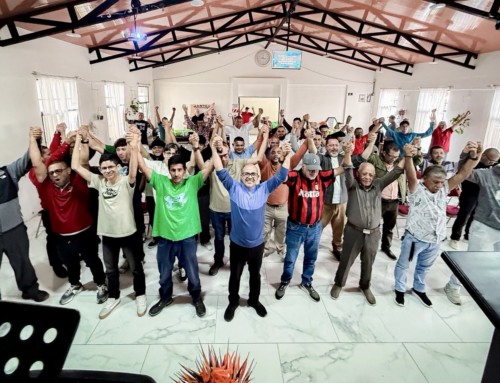By Dr. David A. Busic, General Superintendent
Holiness discipleship does not happen naturally. It is both spiritual (what God does for us by his grace) and practical (how we participate with the grace of God).
When referring to character formation, the ancient writers often used the term “virtue.” They believed virtue to be what happens when consistent and faithful choices are made until actions become second nature.
In N.T. Wright’s marvelous book on discipleship, After You Believe, he tells the story of how Captain C.B. “Sully” Sullenberger was able to make quick and crucial decisions to land a commercial airplane full of passengers on the Hudson River. Wright explains:
“Sully wasn’t born being able to fly a plane, let alone the ‘soul skills’ that showed up in a matter of a few minutes, like courage, quick judgment, and concern for the safety of others at risk of your own. No, you have to practice it until what starts out as feeling
very odd begins to feel normal, and then what feels normal begins to be so ingrained into your mind and muscle memory that you react rather than having to think.”
Wright points out that what Sully needed in that moment was not just knowledge or determination; he needed the practiced virtue of what had become like “second nature” to him. It is this “second nature” idea that caused me to reflect on holiness discipleship.
There are few who would disagree that virtues like courage, endurance, restraint, wisdom, good judgment, and patience don’t come naturally to us. They are aspects of the fruit of the Spirit that are cultivated in us by the Holy Spirit. Often, these are
ingrained into our character through painful and difficult circumstances.
Many people can present themselves initially as courageous and patient, but as you get to know them you realize that it is only at a superficial level. When faced with a crisis, or when their guard is down, they are as anxious and impatient as anybody else. As
Wright would say, “they are just doing what comes naturally because they haven’t acquired new second nature skills.”
Our Christian character is not made in a crisis, but instead it is revealed. When we don’t have time to reflect, but only react, who we really are shows up every time.
Becoming like Jesus does not happen automatically. We are saved and sanctified in a moment, but Christlike character is grown in us for a lifetime. In that way, the fruit of the Spirit is both a gift and a maturing virtue. We are provided the potential of a
Christlike character, but we must learn to garden the holy blossoms of love, joy, peace, patience, kindness, goodness, faithfulness, gentleness and self-control toward a mature Christian character that looks like Jesus.
This gardening of the fruit looks like the holy practices some would call the spiritual disciplines. Making space for a daily quiet time with God, consistently being in God’s Word, learning to pray, and using our spiritual gifts to serve others can all become a means of grace that the apostle Paul says can help us “continue to work out our salvation [that is, cultivate, bring it to full effect, actively pursue spiritual maturity] with awe-inspired fear and trembling.” (Philippians 2:12 AMP)
Holiness discipleship is spiritual and practical. We cannot have one without the other.
Taken from The Journey Newsletter, a resource of Nazarene Discipleship International.
Subscribe here to receive it HERE (You will get this newsletter in your inbox six times a year).






